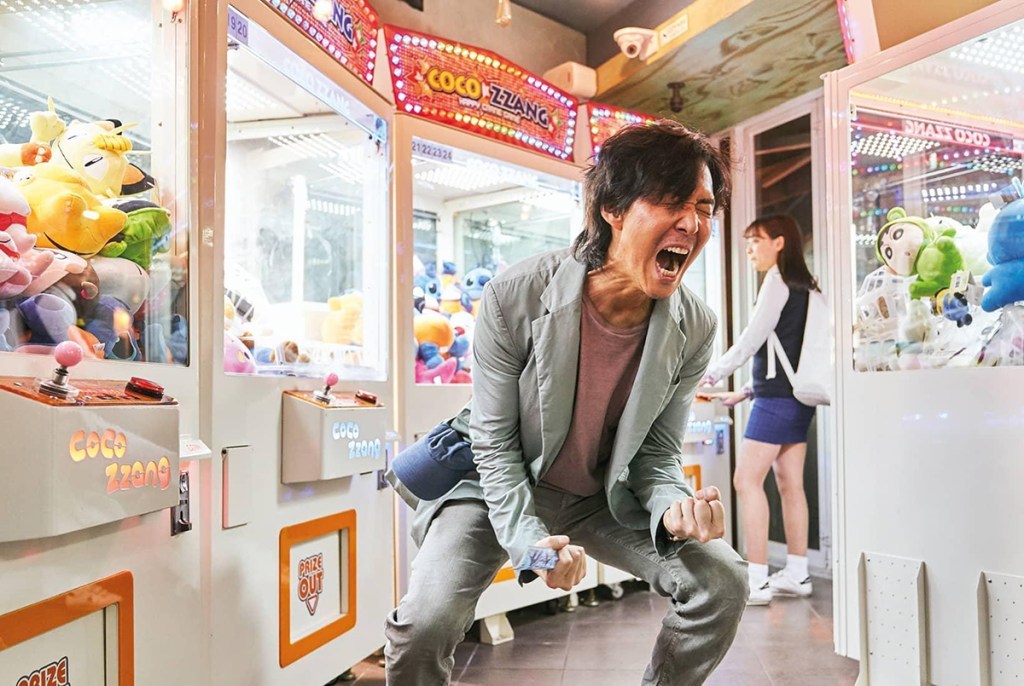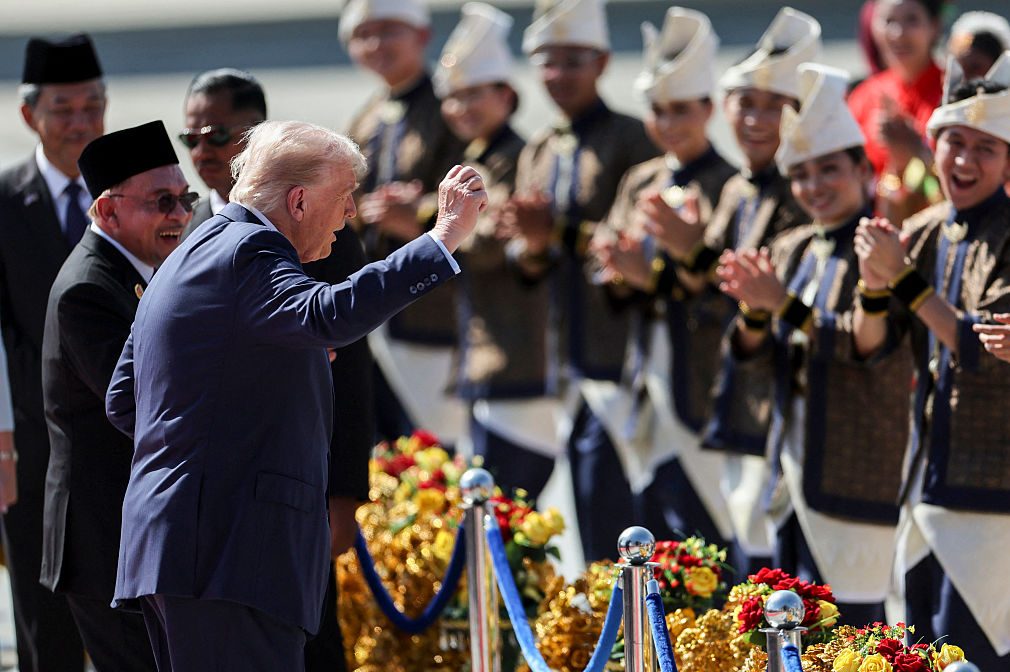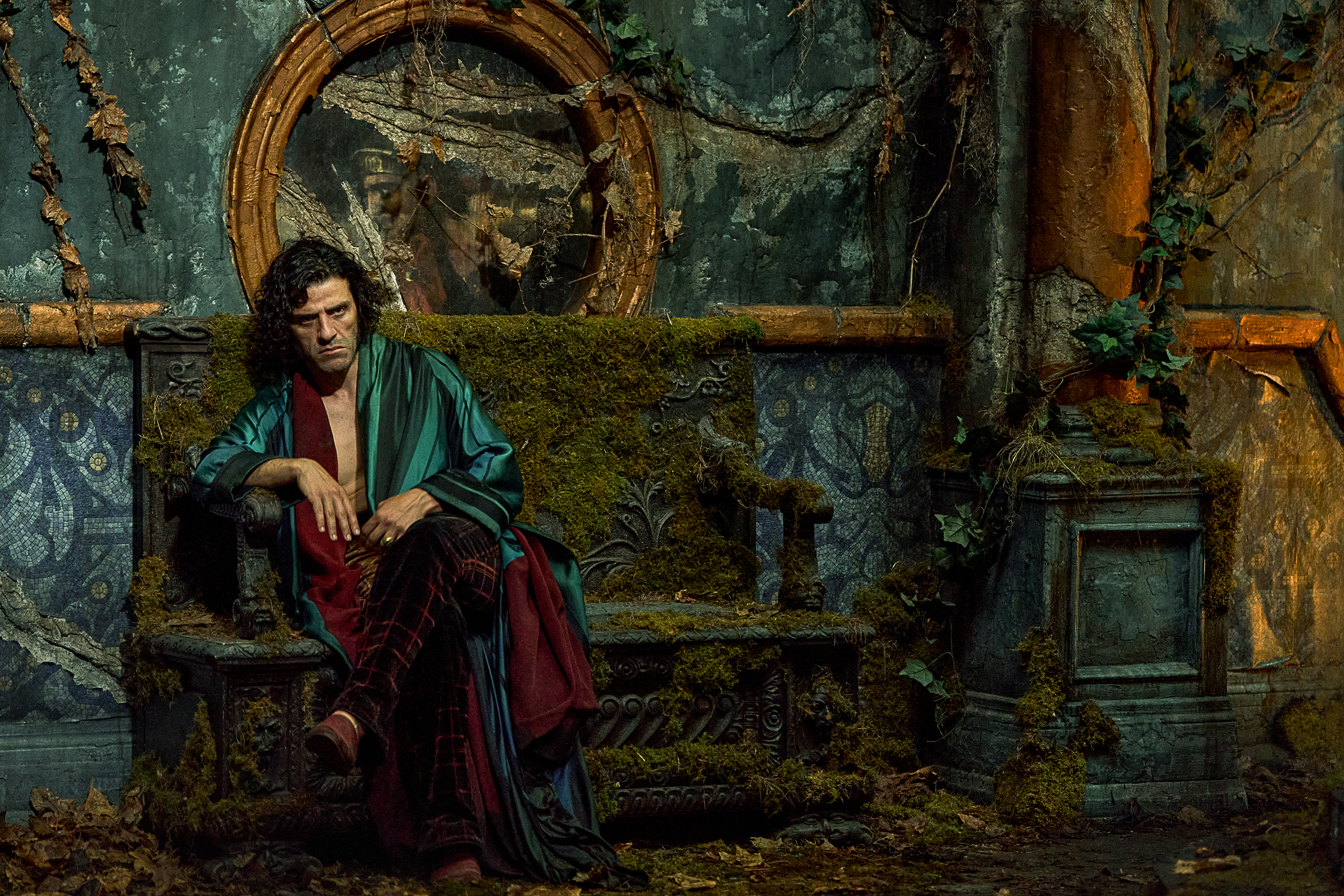Should we be worried that Squid Game is the most popular show in Netflix’s history? If it’s a case of art imitating life, then the prognosis for our civilization is not good: most of us will die, horribly, sooner rather than later, but for the very few who survive there will be untold riches to enjoy in the company of the cruel and capricious controlling super-elite.
Squid Game is a Korean update of the Japanese cult classic Battle Royale (2000) which spawned — or revived; let’s not forget Rollerball (1975) — the genre known as ‘death games’. These films take place in a dystopian future where ordinary, desperate folk compete in a series of gladiatorial to-the-death contests for the amusement of the ruling oligarchy. Recentish examples include The Hunger Games trilogy and Maze Runner.
Part of their appeal to the young, of course, is the depressive hit of seeing lots of characters whom you’ve got to know and like meet imaginative and upsetting deaths. In Squid Game, the various fatal competitions are based on traditional Korean childhood games. One, familiar in the West as Grandmother’s Footsteps, requires you to steal your way forward, pausing stock still whenever ‘Grandmother’ looks round. Except in this case, the penalty for being caught out is to be instantly shot dead.
After the first round of slaughter, the surviving contestants are outraged at being exposed to such butchery. Surely this sort of thing shouldn’t be allowed? But then greed gets the better of them. All have been selected because they are massively in debt with no hope of earning their money back by normal means. Forcing them to realize that they are in this evil show by choice rather than because they are mere victims just adds to their humiliation — and increases their hunger to kill.
The show has a distinctive aesthetic somewhere between The Prisoner and one of those primary-colored soft-play indoor amusement centers, only with squealing toddlers replaced by masked guards in red hooded jump suits and dying contestants. I guarantee that this is what every other person will be wearing at teen and twentysomething fancy dress parties for the next year. Those that aren’t done up as guards (the symbols on their black fencing masks — from circle to square — indicating their seniority) will be in the numbered green and white track suits and white Vans worn by the competitors.
But is it any good? After the first episode, the Fawn (never a fan of splatter porn) was reluctant to persist and I feared I’d have to watch it on my own, a bit like I had to do with The Walking Dead. What won her over were the characters and her appreciation that lurking beneath the gore were moments of wit, sensitivity and poignancy.
This was particular evident in the episode (spoilers, but not too many) where they are forced to choose a companion to partner them in the next game. Cruelly — because they’ve teamed up with their friend or, in one case, their spouse — the game turns out to be a marbles-to-the-death match which, inevitably, only one in each partnership can survive.
Apparently, the original Korean dialogue is much more nuanced and clever than the crass, basic translations in the subtitles. The intelligence of the marbles episode seems to confirm this. Each partnership gets to choose exactly how they’re going to play their marbles — as a throwing-accuracy contest, a gambling game of spoof, or whatever. Some win by lying, bullying or otherwise cheating; some engage in acts of noble self-sacrifice. Sure, Squid Game may be brutal, cynical, kitsch at times but in this episode its heart is clearly not with the wormy self-preservationists but with those who, in the face of random, unfair death, choose to stamp meaning on the meaningless with a Sydney Carton-like gesture of humanity and ultimate decency.
Its previously mostly unknown stars are now hugely famous. HoYeon Jung, who plays number 067 Sae-byeok, a cool, sulky North Korean defector, saw her Instagram following jump from 400,000 to 17 million and she is now a model for both Louis Vuitton and Adidas. Series creator Hwang Dong-hyuk, who spent a decade trying to get the project green-lit and was once so desperate he sold his laptop for cash, will probably have less trouble getting his next script financed.
This article was originally published in The Spectator’s UK magazine. Subscribe to the World edition here.

























